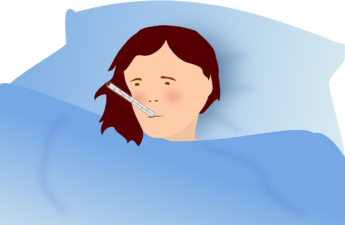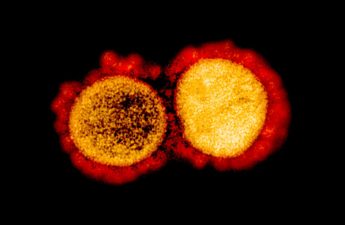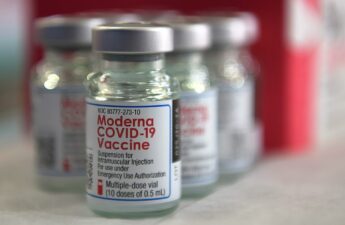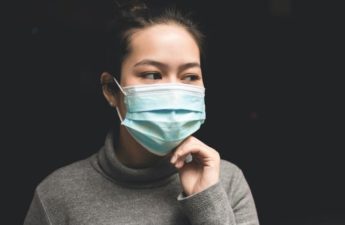Category: COVID
Beware of Fraudulent Coronavirus Tests, Vaccines and Treatments—FDA warns
The FDA is particularly concerned that these deceptive and misleading products might cause people to delay, skip or stop appropriate medical treatment for COVID-19, leading to serious and life-threatening harm. It’s likely that the products do not do what they claim, and the ingredients in them could cause adverse effects (bad reactions) and could interact and potentially interfere with medications to treat many underlying medical conditions.
Act fast if you feel you have COVID symptoms, Medicare urges
Feeling sick? If you have any COVID-19 symptoms, act fast!COVID-19 antiviral treatments can help reduce your symptoms and keep you out of the hospital, but you must take them as soon as possible.
We can learn a lot about long COVID from years of diagnosing and treating chronic fatigue syndrome
While some long COVID symptoms are unique (microclots, lung scar tissue, or organ damage due to acute infection), most resemble the clinically very similar disorder myalgic encephalomyelitis, more commonly known as chronic fatigue syndrome.
Three in five long COVID patients have organ damage a year after infection
From this first set of scans, we found 331 participants (62%) had organ damage. Impairment of the liver, pancreas, heart and kidneys were most common (affecting 29%, 20%, 19% and 15% of participants respectively). These 331 participants were followed up six months later with a further MRI scan.
We found that three in five of the original study participants (59%) had impairment in at least one organ a year after infection, while just over one in four (27%) had impairment in two or more organs. So, for the vast majority of participants who had organ damage at six months, it was sustained until at least 12 months.
While in some cases participants with organ damage were no longer experiencing symptoms, organ impairment was associated with a higher likelihood of persistent symptoms and reduced function at 12 months.
We got some key things wrong about long COVID. Here are 5 things we’ve learnt
It can take months to recover lung function – and some people never do. COVID can increase the risk .of or worsen chronic diseases. Long COVID isn’t a single disorder. COVID shouldn’t be dismissed as a psychological problem
Black and Hispanic Americans found to experience more long Covid symptoms
Black and Hispanic Americans appear to experience more symptoms and health problems related to long COVI , a lay term that captures an array of symptoms and health problems, than white people, but are not as likely to be diagnosed with the condition, according to new research funded by the National Institutes of Health.
Genetics might explain why some people have never had COVID
. . . but we shouldn’t be too focused on finding out
King County and the City of Seattle will no longer require proof of vaccination against COVID-19 as a condition of employment.
With King County’s high level of vaccination booster uptake and lower levels of community spread, hospitalizations due to COVID infection remained at a safe level, making the overall risk forecast low enough to lift the mandate for employees, volunteers, and contractors.
Yes, masks reduce the risk of spreading COVID, despite a review saying they don’t
An updated Cochrane Review published last week is the latest to suggest face masks don’t work in the community.
However there are problems with the review’s methodology and its underpinning assumptions about transmission. Well-designed real-world studies during the pandemic showed any mask reduces the risk of COVID transmission by 50–80%, with the highest protection offered by N95 respirators.
China’s COVID situation is dire – but it shouldn’t pose a big risk to other countries
In contrast to China at the outset of this wave, most countries by now have high immunity and protection against severe disease and death from COVID. The European Centre for Disease Prevention and Control has noted that China’s surge “is not expected to impact the COVID-19 epidemiological situation” in Europe.
Most long COVID cases had mild initial infections, UW study finds
Study found that a staggering 90% of people living with long COVID initially experienced only mild illness with COVID-19. After developing long COVID, however, the typical person experienced symptoms including fatigue, shortness of breath and cognitive problems such as brain fog – or a combination of these – that affected daily functioning. These symptoms had an impact on health as severe as the long-term effects of traumatic brain injury. Our study also found that women have twice the risk of men and four times the risk of children for developing long COVID.
Public Health – Seattle & King County report assesses its COVID response
King County achieved the lowest death rate due to COVID-19 of the twenty largest metropolitan areas of the country (as of January 2022).
Local health officials and health system leaders in Washington state urge public to wear masks while in indoor spaces, keep up-to-date on vaccines
In addition to RSV and influenza, new COVID-19 variants are taking hold and immunity from past vaccination is waning for many people who have not yet received an updated booster shot.
The longer you can avoid Covid, the better
The “no point delaying infection” argument falls down in a number of places. First, infections aren’t risk free. Second, better treatments and vaccines are on the horizon.
China could face a catastrophic COVID surge as it lifts restrictions – here’s how it might play out
Given the low level of immunity in China, a major surge would likely see large numbers of hospitalisations and might lead to a dramatic death toll. If we assume, say, 70% of the Chinese population becomes infected over the coming months, then if 0.1% of those infected die (a conservative estimate ), a back-of-the-envelope calculation suggests we’d see around one million deaths.











